Hyundai i30 vs VW Golf Variant - Differences and prices compared
Compare performance (140 HP vs 333 HP), boot space and price (24000 £ vs 26100 £) at a glance. Find out which car is the better choice for you – Hyundai i30 or VW Golf Variant?
Costs and Efficiency:
Price and efficiency are key factors when choosing a car – and this is often where the real differences emerge.
Hyundai i30 has a minimal advantage in terms of price – it starts at 24000 £, while the VW Golf Variant costs 26100 £. That’s a price difference of around 2147 £.
Fuel consumption also shows a difference: VW Golf Variant manages with 4.30 L and is therefore clearly perceptible more efficient than the Hyundai i30 with 5.70 L. The difference is about 1.40 L per 100 km.
Engine and Performance:
Power, torque and acceleration are the classic benchmarks for car enthusiasts – and here, some clear differences start to show.
When it comes to engine power, the VW Golf Variant has a significantly edge – offering 333 HP compared to 140 HP. That’s roughly 193 HP more horsepower.
In acceleration from 0 to 100 km/h, the VW Golf Variant is decisively quicker – completing the sprint in 4.80 s, while the Hyundai i30 takes 9.60 s. That’s about 4.80 s faster.
In terms of top speed, the VW Golf Variant performs evident better – reaching 250 km/h, while the Hyundai i30 tops out at 197 km/h. The difference is around 53 km/h.
There’s also a difference in torque: VW Golf Variant pulls noticeable stronger with 420 Nm compared to 253 Nm. That’s about 167 Nm difference.
Space and Everyday Use:
Whether family car or daily driver – which one offers more room, flexibility and comfort?
Both vehicles offer seating for 5 people.
In curb weight, Hyundai i30 is barely noticeable lighter – 1291 kg compared to 1366 kg. The difference is around 75 kg.
In terms of boot space, the VW Golf Variant offers evident more room – 611 L compared to 395 L. That’s a difference of about 216 L.
In maximum load capacity, the VW Golf Variant performs noticeable better – up to 1642 L, which is about 341 L more than the Hyundai i30.
When it comes to payload, VW Golf Variant hardly perceptible takes the win – 547 kg compared to 509 kg. That’s a difference of about 38 kg.
Who wins the race?
The VW Golf Variant proves to be wins the duel decisively and therefore becomes our DriveDuel Champion!
VW Golf Variant is the better all-rounder in this comparison.
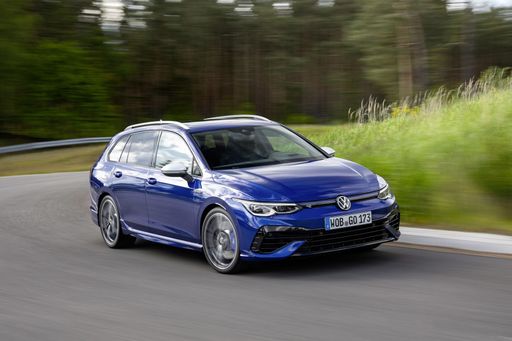
VW Golf Variant
Costs and Consumption
View detailed analysis
Engine and Performance
View detailed analysis
Dimensions and Body
View detailed analysis
Hyundai i30
The Hyundai i30 proves that sensible can also be stylish, offering a confident driving character wrapped in neat, modern design. It serves up a roomy, well-equipped cabin and composed ride that make everyday motoring feel like a clever purchase rather than a compromise.
details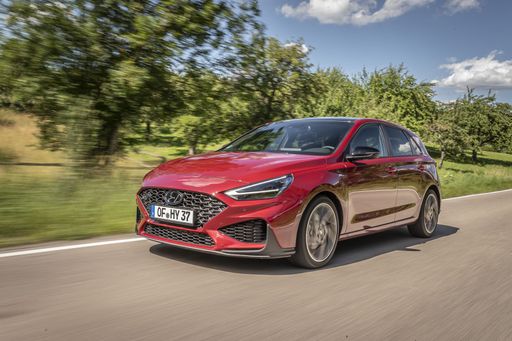
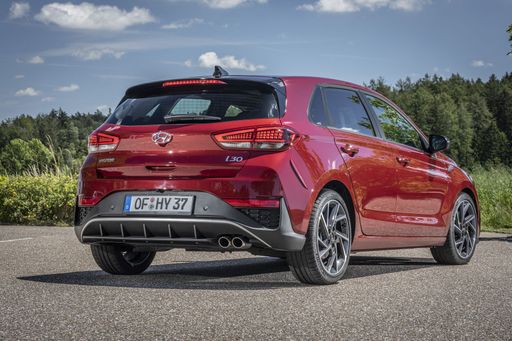
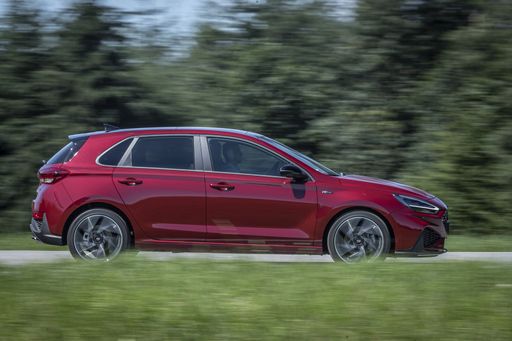
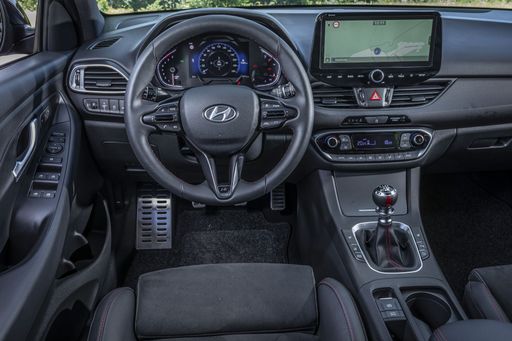
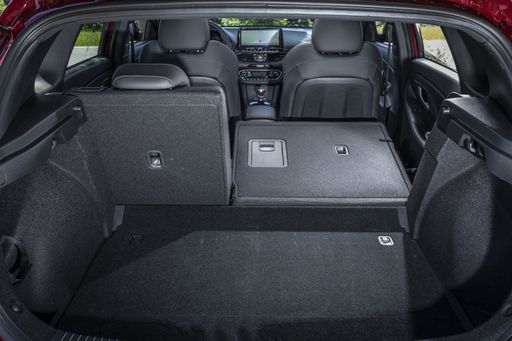
VW Golf Variant
The Golf Estate packs Volkswagen's familiar poise into a practical, grown-up estate that quietly makes everyday life easier without shouting for attention. It's clever, comfortable and roomy enough for weekend kit or family chaos, offering smart packaging and refined manners that make it a sensible and surprisingly stylish choice for buyers who need space but don't want a van.
details
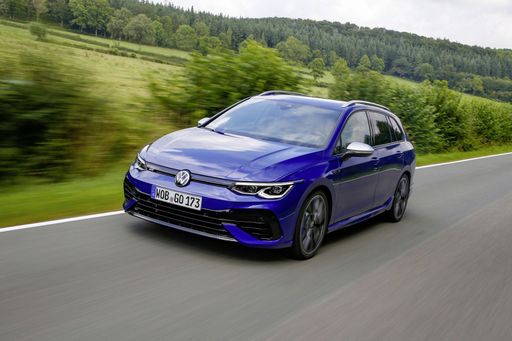
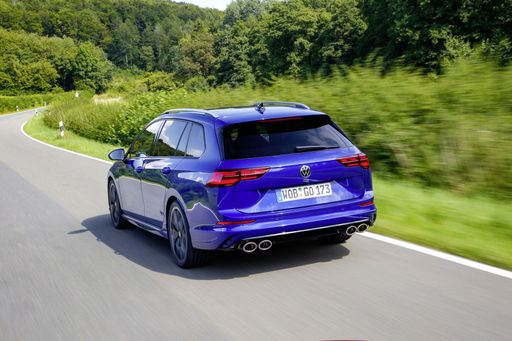
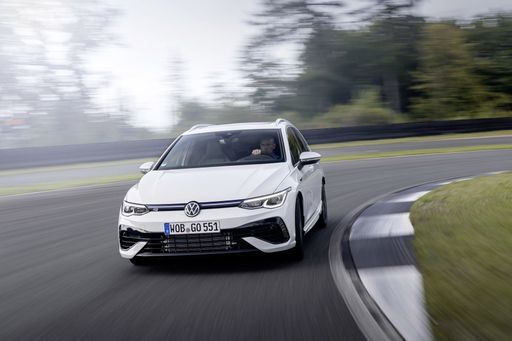
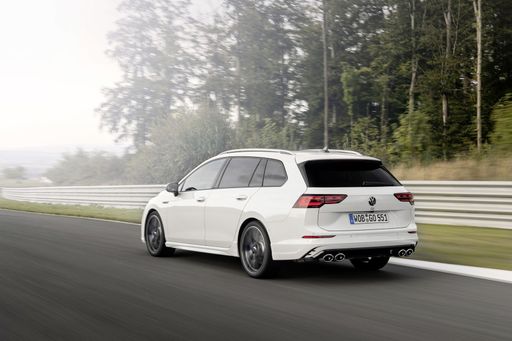
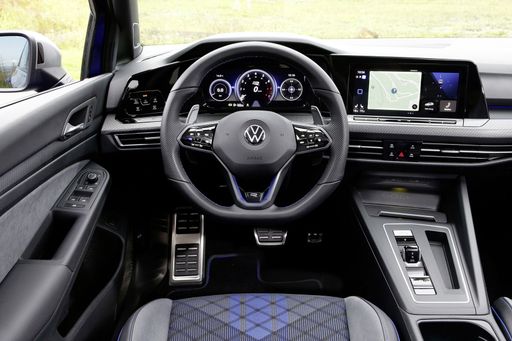
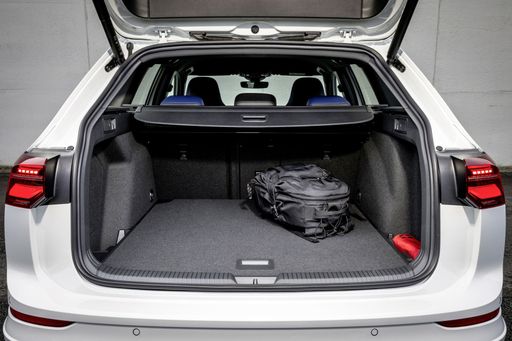

|

|
|
|
|
Costs and Consumption |
|
|---|---|
|
Price
24000 - 29300 £
|
Price
26100 - 48700 £
|
|
Consumption L/100km
5.7 - 6 L
|
Consumption L/100km
4.3 - 8.2 L
|
|
Consumption kWh/100km
-
|
Consumption kWh/100km
-
|
|
Electric Range
-
|
Electric Range
-
|
|
Battery Capacity
-
|
Battery Capacity
-
|
|
co2
130 - 136 g/km
|
co2
114 - 185 g/km
|
|
Fuel tank capacity
50 L
|
Fuel tank capacity
45 - 55 L
|
Dimensions and Body |
|
|---|---|
|
Body Type
Hatchback
|
Body Type
Estate
|
|
Seats
5
|
Seats
5
|
|
Doors
5
|
Doors
5
|
|
Curb weight
1291 - 1407 kg
|
Curb weight
1366 - 1621 kg
|
|
Trunk capacity
395 L
|
Trunk capacity
611 L
|
|
Length
4340 mm
|
Length
4631 - 4651 mm
|
|
Width
1795 mm
|
Width
1789 mm
|
|
Height
1455 mm
|
Height
1462 - 1487 mm
|
|
Max trunk capacity
1301 L
|
Max trunk capacity
1624 - 1642 L
|
|
Payload
463 - 509 kg
|
Payload
489 - 547 kg
|
Engine and Performance |
|
|---|---|
|
Engine Type
Petrol, Petrol MHEV
|
Engine Type
Petrol MHEV, Petrol, Diesel
|
|
Transmission
Manuel, Automatic
|
Transmission
Automatic, Manuel
|
|
Transmission Detail
Manual Gearbox, Dual-Clutch Automatic
|
Transmission Detail
Dual-Clutch Automatic, Manual Gearbox
|
|
Drive Type
Front-Wheel Drive
|
Drive Type
Front-Wheel Drive, All-Wheel Drive
|
|
Power HP
100 - 140 HP
|
Power HP
116 - 333 HP
|
|
Acceleration 0-100km/h
9.6 - 13.1 s
|
Acceleration 0-100km/h
4.8 - 10.5 s
|
|
Max Speed
178 - 197 km/h
|
Max Speed
202 - 250 km/h
|
|
Torque
172 - 253 Nm
|
Torque
220 - 420 Nm
|
|
Number of Cylinders
3 - 4
|
Number of Cylinders
4
|
|
Power kW
74 - 103 kW
|
Power kW
85 - 245 kW
|
|
Engine capacity
998 - 1482 cm3
|
Engine capacity
1498 - 1984 cm3
|
General |
|
|---|---|
|
Model Year
2024
|
Model Year
2024 - 2025
|
|
CO2 Efficiency Class
D, E
|
CO2 Efficiency Class
D, G, F, C
|
|
Brand
Hyundai
|
Brand
VW
|
What drive types are available for the Hyundai i30?
Available configurations include Front-Wheel Drive.
The prices and data displayed are estimates based on German list prices and may vary by country. This information is not legally binding.
